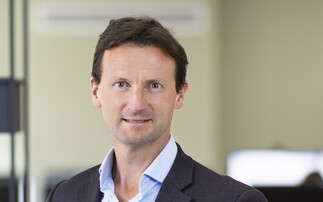Newton Investment Management's series of DC columns continues with Julian Lyne discussing how the industry meets the demand for SRI
Interest in sustainability has increased hugely over the recent past in the US, with sustainable investing seeing 135% growth from 2012-2016, according to the US SIF Foundation1. Much of the focus has been driven by large public-sector DB plans, as well as by the endowments and foundations sector.
Increasingly, however, people are making the connection between the increasing importance of the millennial 401k DC population, and the fund choices on offer. Rightly or wrongly, commentators are contrasting the investment beliefs of the various generations that make up the DC population, and postulating whether more account needs to be taken of these differing investment views.
At the nub of the argument is the belief that millennials, more than other generations, wish to see the companies they invest in behave in a more sustainable fashion. According to research conducted by Morgan Stanley, 86% of millennials (broadly defined as those born between the early 1980s and 2000) say they are interested in socially responsible investing. Millennials are also twice as likely to invest in a stock or a fund if social responsibility is part of the value-creation thesis2. According to the Schroders Global Investor Study 2016, which surveyed 20,000 end investors in 28 countries, the millennial generation ranked ESG factors as equally important as investment outcomes when considering investment decisions3.
Although the reality of these generational differences is debateable, there is no doubt that the fund management industry has responded with a surge of new investment products. However, in a recent Callan DC survey, only three out of 17 corporate DC plans offered funds in which environmental, social and governance (ESG) factors were included4, so there seems to be a disconnect somewhere.
One reason could be the range of ‘responsible' investments available. From screened socially responsible investment (SRI) funds to integrated approaches and branded sustainable funds, the choice is widespread. This reflects that there is a wide definition of what ESG and responsible investing means, and not everyone has the same investment objective. Indeed, at Newton, our clients invest in all three approaches.
The reasons why DC investors are considering ESG options are varied. It could be that they do not want to hear of a stock they own in their plan being responsible for polluting, or having issues with corruption or slave labour in its supply chain. It could be a belief that companies that consider ESG factors will in the long term outperform those that don't, which is ultimately a belief in better long-term performance (and some might argue better risk management too). Where the latter is the case, ESG-related investing will prove attractive for all cohorts and not just the millennial generation.
Julian Lyne is chief commercial officer at Newton Investment Management
For more information please contact: Catherine Doyle, head of DC UK, Newton Investment Management, [email protected]
1 Source: Report on US Sustainable, Responsible and Impact Investing Trends, US SIF Foundation, November 2016
2 https://www.morganstanley.com/ideas/millennial-sustainable-investing
3 http://www.schroders.com/en/media-relations/newsroom/all_news_releases/schroders-global-investor-study-2016-millennials-put-greater-importance-on-esg-factors/
4 http://www.pionline.com/article/20180205/PRINT/180209917/dc-participants-seen-as-next-advocates-of-esg-mantra







